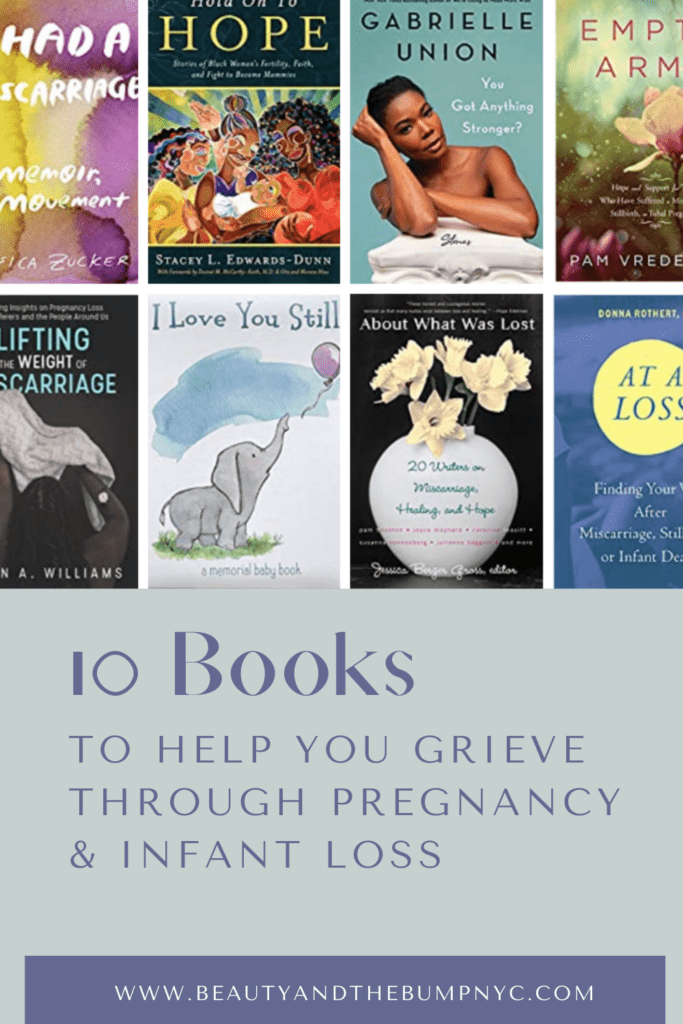Studies show that Black women experience pregnancy loss, including miscarriages, at higher rates than White women. However, miscarriage is a taboo topic of discussion within the Black community. Due to this, it has always been hard for me to discuss my experience with pregnancy loss with family and friends. It was fear of being judged or sheer embarrassment. I suffered multiple miscarriages. Two before having my oldest daughter, and several after having her, and eventually having my second rainbow baby. I was optimistic each time to only have my dreams crushed days or weeks later. It never gets easier, especially when you don’t have the support needed to get through your grief. But I’ve learned that not having these conversations hurts women like me who are dealing with pregnancy and infant loss. So many women struggle with the feelings of loss, disappointment, anger, and guilt associated with experiencing a miscarriage. With October being Pregnancy and Infant Loss Awareness Month, now is the perfect time to highlight books on this topic.


Empty Arms: Hope & Support for Those Who Have Suffered Miscarriage, Stillbirth or Tubal Pregnancy
The most exciting moment when you’re trying to get pregnant is seeing two lines on a pregnancy test. The most devastating part is going in for a sonogram and hearing, “There’s an empty sac.” or “There isn’t a heartbeat.” I’ve experienced this many times. Like many, my joy and anticipation dissolve into confusion and grief, painful questions refuse to go away: Why me? Did I do something wrong? How will this affect my ability to have a family? What do I say to my children without scaring them? This book helps, written by a Licensed Professional Counselor who has also experienced pregnancy and infant loss, offers advice to help with grieving. Pam Vredevelt provides reassuring comfort to any woman fighting to maintain stability and faith in the midst of devastating heartbreak. This is an essential guidebook for anyone suffering the agony of losing a baby.

Lifting the Weight of Miscarriage
Lifting the Weight of Miscarriage provides a raw recount of one woman’s journey in the six months following her second-trimester miscarriage. Talk about DEVASTATING! By exploring her physical, emotional, and spiritual experiences in that time, Jihan offers insight into the often hidden world of pregnancy loss while providing suggestions to encourage healing that can be useful to other sufferers and the people in their lives.

I Had a Miscarriage: A Memoir, A Movement
In this book, psychologist, Jessica Zucker weaves her own experience and other women’s stories into a compassionate and compelling exploration of grief as a necessary, nuanced personal and communal process.

Hold on To Hope: Stories of Black Women’s Fertility, Faith, and Fight to Become Mothers
This is a unique collection of stories of infertility in the Black community. It shows Black women they are not alone among their peers in their yearning to have a baby. Providing hope to those in this journey, and showing the many roads available to becoming a parent.

I Love You Still: A Memorial Baby Book

You Got Anything Stronger? Stories
In You Got Anything Stronger? Gabrielle Union provides insights on changes in her life that have been a mix of emotions. She candidly talks about her surrogacy journey and the birth of her daughter, Kaavia James Union Wade.

About What Was Lost: Twenty Writers on Miscarriage, Healing, and Hope
Today, as many as one in four pregnancies ends in miscarriage. And yet, many women are surprised to find that instead of simply grieving the end of a pregnancy, they feel as if they are mourning the loss of a child. Taken aback by their sorrow, they seek solace in similar perspectives—only to find that silence and lingering stigma surrounds the topic. Revealing a wide spectrum of experiences and perspectives, this powerful collection of stories provides comfort and community for the millions of women (and their loved ones) who experience this all-too-common kind of loss every year.

My Miscarriage: And Other Uninvited Events
This book provides an honest account of how Traci McCombs learned to navigate the fine line between hope and grief, faith and despair while battling infertility and cancer. She removes the veil of silence, which has shrouded the topic of miscarriage, infertility, and pregnancy loss for too long. If you’re looking for someone to share in your grief and support you and say, “I had a miscarriage too.” Then this is it!

The Miscarriage Map: What To Expect When You Are No Longer Expecting
In this book, psychologist Dr. Sunita Osborn, who isn’t a stranger to miscarriage herself, addresses the relevant but often unspoken topics following a miscarriage. Many of them I found myself relating to such as “hating” pregnant people and my body. It also discusses the impact of miscarriage on a relationship, and how to move forward (not past).

At A Loss: Finding Your Way After Miscarriage, Stillbirth or Infant Death
Experiencing pregnancy and infant loss can leave you feeling alone. But you’re not. Life after these losses can be heartbreaking, confusing, and lonely. Family, friends, and medical professionals may minimize your loss or say “You can always try again.” This book, which was written by a clinical psychologist, Donna Rothert, Ph.D., who experienced two pregnancy losses herself, features 30 essays on the thoughts, feelings, and struggles that come along with losing a pregnancy or baby. Whether you are early in a crisis of grief or exploring the loss years afterward, you will find self-compassion, healing, and new ways to make meaning of your loss.
Related: How to Support Family and Friends Struggling with Infertility
The aftermath of miscarriage, stillbirth, and infant death has long-lasting impacts. It’s books like these, telling stories of women who have similar experiences that help women and couples cope and grieve. Perhaps you haven’t experienced any of these things, but know someone who has. These books can help you understand your loved ones’ experience just a little bit beyond the surface.
